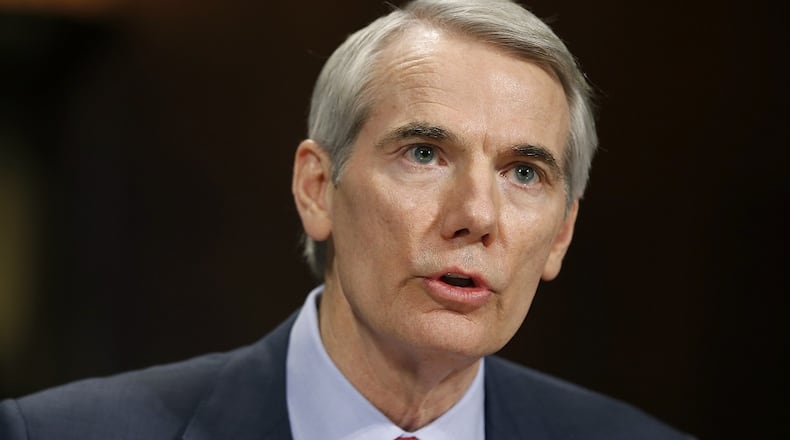Sen. Rob Portman said it was “doable” for the Senate to push through a major overhaul of the U.S. tax code designed to reduce income tax rates on individuals and companies in exchange for scrubbing scores of deductions from the code.
In an interview Tuesday on Fox News, Portman, R-Ohio, said revising the code is “doable because we spent years on this. We’re long overdue in reforming a broken tax code.”
“I think there is a consensus now that there is a way to fix this code to bring back more jobs and investment and to help middle class families be able to get ahead,” Portman said.
Portman, a longtime advocate of overhauling the tax code, expressed hope in getting “some Democratic support.”
But he acknowledged that there is a “fundamental” difference between Republicans and Democrats on which taxes to reduce and how cutting taxes will impact the swollen federal budget deficit.
“We Republicans believe that if you do the kinds of things we’re talking about you’ll have more economic growth and therefore more revenue and you will actually be able to help the deficit, and those are just some differences we’ll have to work out,” Portman said.
Under the framework released last month by the White House, President Donald Trump and congressional Republicans want to consolidate the current seven individual income tax brackets into three brackets of 12 percent, 25 percent and 35 percent while reducing the corporate tax rate from 35 percent to 20 percent. Republicans have talked about adding a fourth individual bracket for the wealthiest of families.
The standard deduction would be doubled to $24,000 a year for married taxpayers and $12,000 for those who are single filers. In return, the $4,000 personal exemption eliminated.
By accepting the higher standard deduction, taxpayers could not itemize their returns to take deductions for mortgage interest, and state and local taxes.
Critics have warned that slashing taxes could make the long-term federal debt problem worse. The non-partisan Congressional Budget Office already projects the government will add nearly $10 trillion in publicly held debt during the next decade.
About the Author
